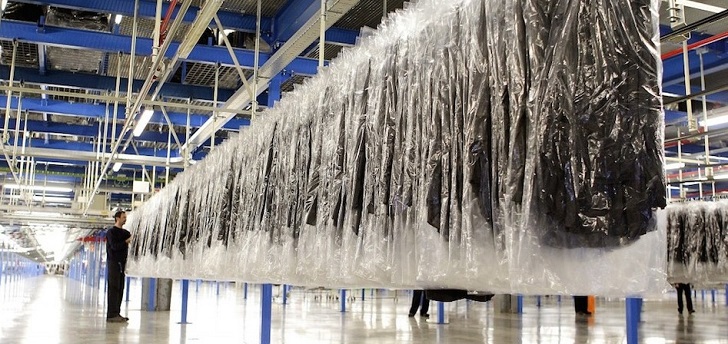2018, the year fashion learned to say efulfilment
The boom of ecommerce has changed the rules of logistics. Traditional storages are no longer of use to escalate the management of individualised and personalised shipping in record time. The logistics of the future are based in robots, artificial intelligence and augmented reality.

This year has marked a turning point for logistics. After learning how to say omnichannel, it was time to advance towards efulfilment to refer to the transformation of logistics facilities.
Mid way through the year, the workers at H&M’s logistics plant in Torrejón de Ardoz, Madrid (Spain) started a conjunct of protests and manifestations. With a workforce composed by 318 people, it was, until then, the only warehouse of the group in Spain. Part of the complaints were founded by an increase of tasks such as the increase of online orders.
The warehouse at Torrejón de Ardoz was designed for retail, not ecommerce. In October, the group announced the building of another warehouse in Illescas to give a greater support to the online business.
The impact of e-commerce in fashion has gone beyond the opening of a new channel: the boom of online sales has not only shaken retail, but all companies working with it, and particularly, logistics: the timings and dynamics of the online environment have turned traditional reception and distribution systems of goods upside down.
The timings and dynamics of e-commerce have forced a radical transformation of the traditional reception and distribution systems of goods
Thus, logistics players have stopped talking about warehouses and began discussing e-fulfilments. We have gone from platforms with manual processes to digital facilities prepared for the escalation of individualised orders. Logistics centres have started to welcome robots that transport and move shelves, augmented reality tools to organize spaces and operations properly, and even artificial intelligence to establish better routes.
The new rules of e-commerce ask from players a much higher exigence than traditional retail systems. Whilst online sales represented 5% of the total retail sales, traditional retailers have negotiated their transformation towards omnichannel with the existent structures. But as the leading role of ecommerce grows in consumption, the structures are no longer of use.
Amazon’s logistics structure and its facilities are the ones framing the sector’s guidelines
Amazon gives clues on how to organise future logistics. The company opened its first Spanish warehouse in 2012 in San Fernando de Henares, entailed by 77,000 square metres. To provide for the Community of Madrid, the group has released a smaller logistics station in Getafe and has another one on the way. Lastly, in the country’s capital, the group has an urban warehouse of more than 3,000 square metres for last minute shipping. The structure in Barcelona is quite similar, with a macrowarehouse in El Prat de Llobregat, two stations in Martorelles and Castellbisbal and an urban warehouse in the city centre.
Inditex, on the other hand, announced this year the intention to take its e-commerce platform all around the world in 2020. The group has been underpinning its logistics structure for several years in order to support this expansion as it is due. Thus, the Spanish giant has nowadays a total of 19 platforms in 17 different countries only to support the online business. These facilities are, according to the company, stock rooms, and the group’s long-term objective is that each country host its own logistics warehouse for the online channel. The group has two of them only in Spain, one in Toledo and the other in Guadalajara.


info@themds.com
Validation policy for comments:
MDS does not perform prior verification for the publication of comments. However, to prevent anonymous comments from affecting the rights of third parties without the ability to reply, all comments require a valid email address, which won’t be visible or shared.
Enter your name and email address to be able to comment on this news: once you click on the link you will find within your verification email, your comment will be published.